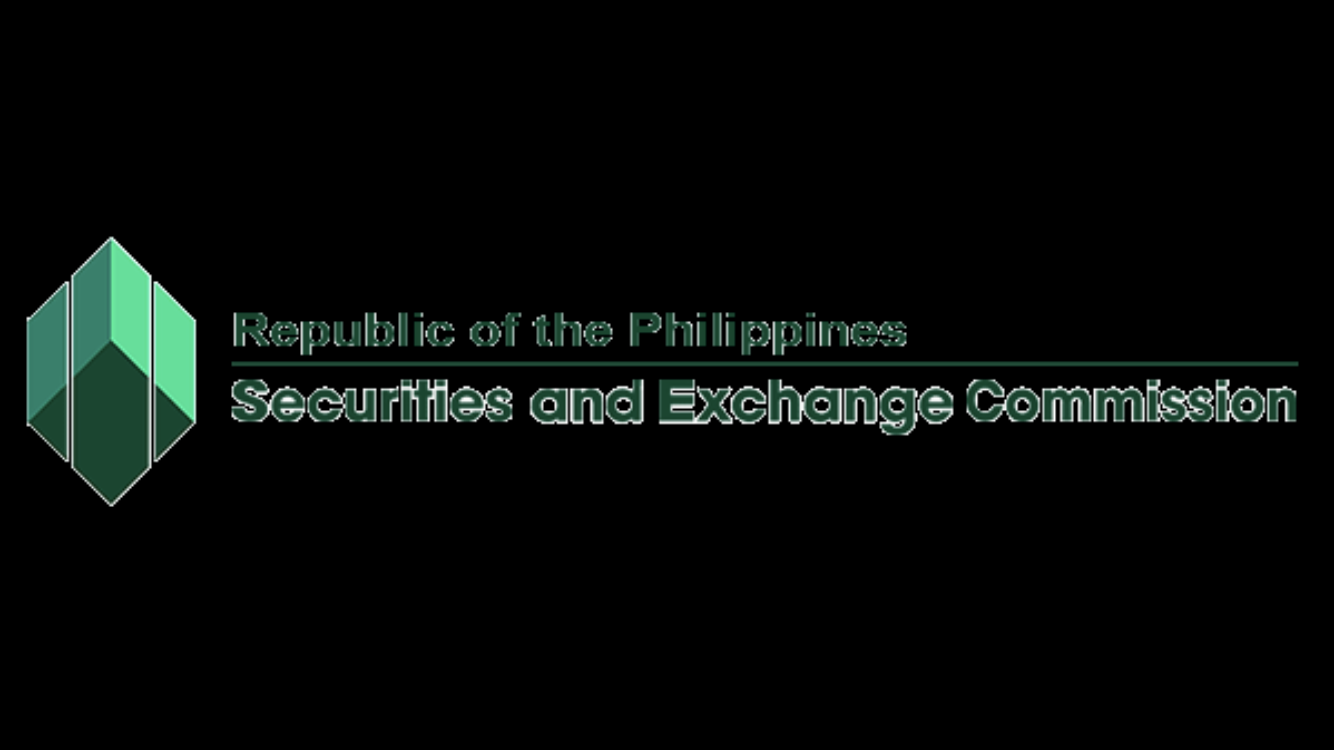Philippine securities sector has ‘medium’ risk to money laundering, terrorist financing —SEC

The Securities and Exchange Commission (SEC) said Tuesday it has released the results of its money laundering (ML) and terrorist financing (TF) risk assessment of the country’s securities sector.
In its assessment, the corporate regulator gave investment companies, brokers, dealers, and other covered capital market participants an overall “medium” risk rating.
The rating is based on the 2021 Sectoral Risk Assessment for the Securities Sector, conducted by the SEC with technical assistance from the Asian Development Bank, the SEC said in a statement.
The assessment covered all of the 304 brokers, dealers, investment houses, underwriters of securities, government securities eligible dealers (GESDs), investment company advisers, mutual fund distributors, and investment companies under the supervision of the SEC.
“It was designed to identify the main criminal offenses and related threats currently being faced by the securities sector, the sector’s vulnerabilities most likely to be exploited for ML/TF purposes, and the potential impact or harm that ML/TF activities and other financial crimes in the sector may cause,” the SEC said.
The corporate regulator said the results of the risk assessment showed that the securities sector faces a “medium” threat of criminal exploitation, as covered persons submitted to the Anti-Money Laundering Council (AMLC) a total of 774 suspicious transaction reports (STRs) from 2017 to 2019.
The STRs covered transactions worth P11.5 billion, it noted.
Of the total, the SEC said 4.9% was linked to the predicate crime of plunder, 2.5% to graft and corrupt practices, 0.9% to drug trafficking and related offenses, and 0.6% to fraudulent practices and other violations of Republic Act No. 8799, or the Securities Regulation Code (SRC).
“Majority of the transactions were suspected to have been facilitated for the commission of the predicate crimes within the Philippines, while five transactions were suspected to have been committed in China,” the SEC said.
Meanwhile, the level of terrorist financing reported by the securities sector to the AMLC “was extremely low or nil,” posing medium to low risks to the sector.
“The sector attracts various criminal threats, with a moderate level of sophisticated tactics and methods to commit offenses,” the SEC noted.
“The cheap availability of internet access, increasing functionality of mobile phones, and technological advancements that speed up transactions… have provided criminals with tools to escape detection or to hide the proceeds of their illegal activities,” it said.
As to the consequences related to ML/TF, or the potential impact or harm that ML/TF and other financial crimes may cause, the securities sector has medium risk exposure, according to the SEC.
It said the severity of the consequences for covered persons in the securities sector varies, and may generally include reputational damage, costs relating to regaining customer confidence, increased compliance costs, increased regulatory action, as well as impact on financial performance and growth.
“For the securities sector, the consequences broadly include a diminished level of market integrity leading to a general loss in public trust and confidence, as well as an adverse impact on earnings and revenue across the sector,” it said.
“Should ML/TF and other financial crimes occur in the financial sector, the economy may see reduced taxation revenues and adverse impacts on the reputation of the Philippines' financial market. As a result, the country could also attract criminals in need of a safe haven for the proceeds of their crime and/or illegal activity,” it noted.
The SEC said the national and international security consequences of terrorist financing in the securities sector is low, given the relatively low level of terrorism financing activity therein.
To address the risks, the SEC said it will develop regular reporting mechanisms and processes to collect adequate, accurate, and up-to-date information and data from the covered persons within the securities sector.
The corporate regulator added it will also take steps to effectively implement the anti-money laundering/combating the financing of terrorism (AML/CFT) risk-based supervisory model through regular off-site and on-site inspections.
Moreover, the SEC said it will issue specific AML/CFT guidance to the securities sector to develop their understanding of major crime threats and ML/TF vulnerabilities, and conduct more regular outreach activities, including seminars, workshops and conferences, as well as regular coordination meetings with the AMLC and the BSP concerning AML/CFT supervision of covered persons in the securities sector.—AOL, GMA News




